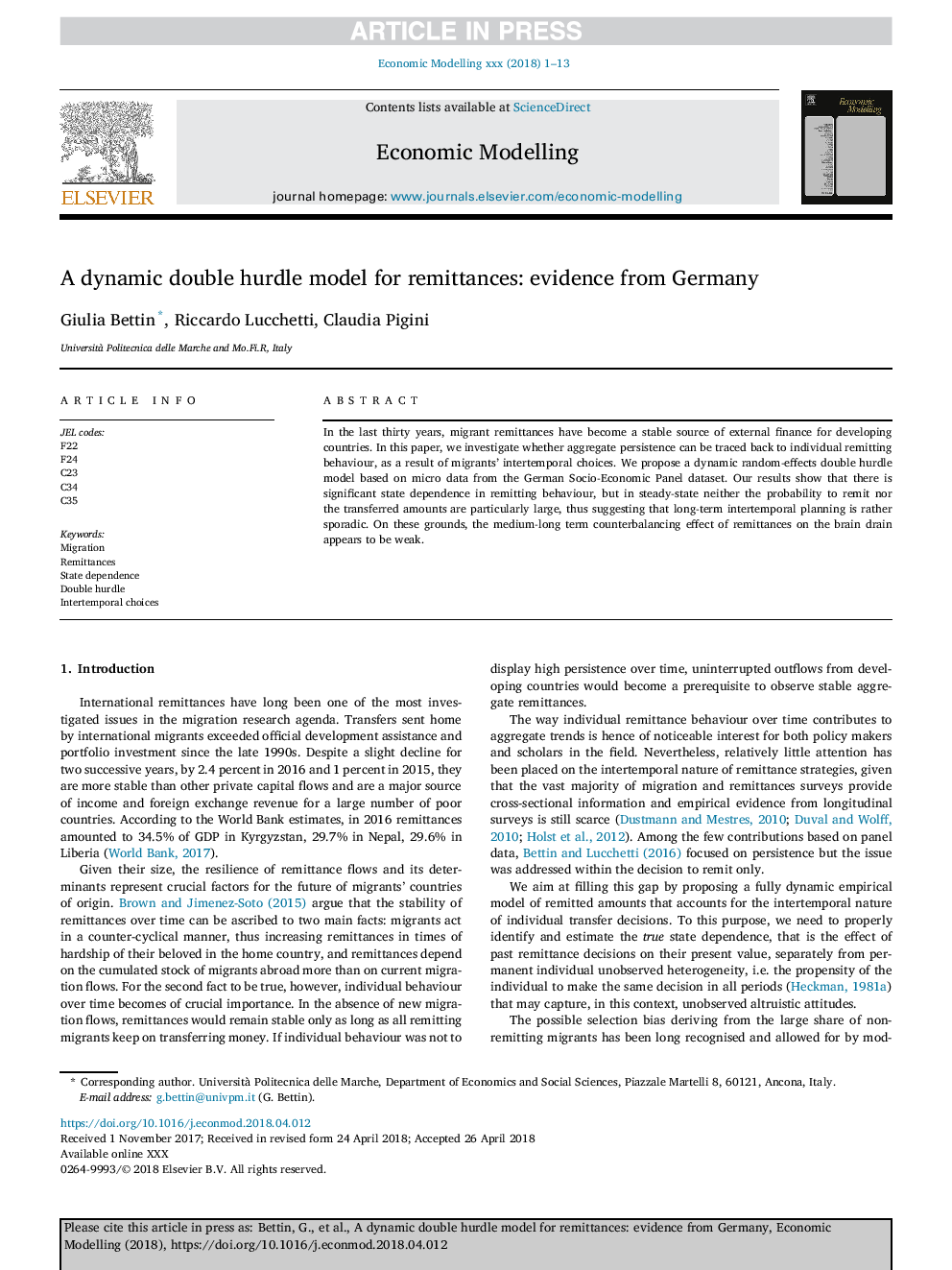| Article ID | Journal | Published Year | Pages | File Type |
|---|---|---|---|---|
| 7346834 | Economic Modelling | 2018 | 13 Pages |
Abstract
In the last thirty years, migrant remittances have become a stable source of external finance for developing countries. In this paper, we investigate whether aggregate persistence can be traced back to individual remitting behaviour, as a result of migrants' intertemporal choices. We propose a dynamic random-effects double hurdle model based on micro data from the German Socio-Economic Panel dataset. Our results show that there is significant state dependence in remitting behaviour, but in steady-state neither the probability to remit nor the transferred amounts are particularly large, thus suggesting that long-term intertemporal planning is rather sporadic. On these grounds, the medium-long term counterbalancing effect of remittances on the brain drain appears to be weak.
Related Topics
Social Sciences and Humanities
Economics, Econometrics and Finance
Economics and Econometrics
Authors
Giulia Bettin, Riccardo Lucchetti, Claudia Pigini,
